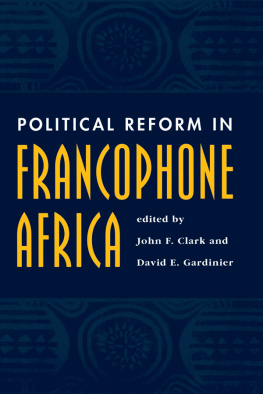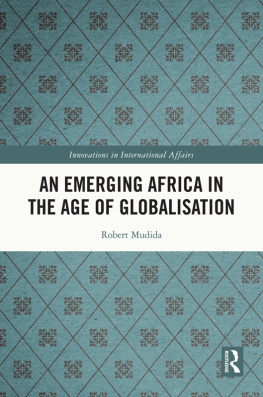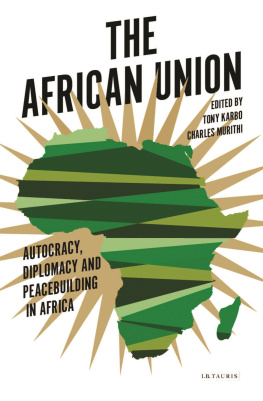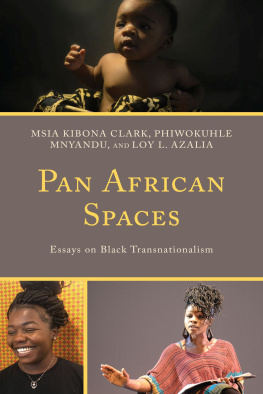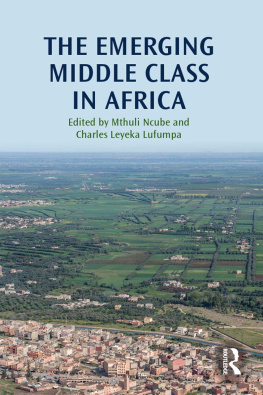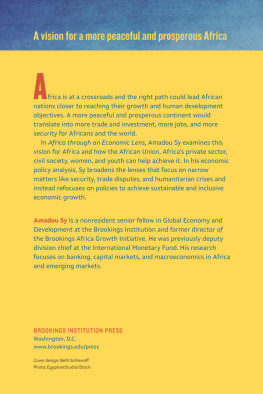Hip-Hop in Africa
Ohio University Research in International Studies
This series of publications on Africa, Latin America, Southeast Asia, and Global and Comparative Studies is designed to present significant research, translation, and opinion to area specialists and to a wide community of persons interested in world affairs. The series is distributed worldwide. For more information, consult the Ohio University Press website, ohioswallow.com.
Books in the Ohio University Research in International Studies series are published by Ohio University Press in association with the Center for International Studies. The views expressed in individual volumes are those of the authors and should not be considered to represent the policies or beliefs of the Center for International Studies, Ohio University Press, or Ohio University.
Executive Editor: Gillian Berchowitz
Hip-Hop in Africa
PROPHETS OF THE CITY AND DUSTYFOOT PHILOSOPHERS
Msia Kibona Clark
Foreword by Quentin Williams
Afterword by Akosua Adomako Ampofo
Ohio University Research in International Studies Global and Comparative Studies Series No. 18 Athens, Ohio
Ohio University Press, Athens, Ohio 45701
ohioswallow.com
2018 by Ohio University Press
All rights reserved
To obtain permission to quote, reprint, or otherwise reproduce or distribute material from Ohio University Press publications, please contact our rights and permissions department at (740) 593-1154 or (740) 593-4536 (fax).
Printed in the United States of America
The books in the Ohio University Research in International Studies Series are printed on acid-free paper 
28 27 26 25 24 23 22 21 20 19 18 5 4 3 2 1
Cover: Kanyi Mavi at her home in Gugulethu Township, Cape Town, in 2016.
Photo by author.
Library of Congress Cataloging-in-Publication Data
Names: Clark, Msia Kibona, author.
Title: Hip-hop in Africa : prophets of the city and dustyfoot philosophers / Msia Kibona Clark ; foreword by Quentin Williams ; afterword by Akosua Adomako Ampofo.
Description: Athens, Ohio : Ohio University Press, [2018] | Series: Ohio University research in international studies. Global and comparative studies series ; No. 18 | Includes bibliographical references and index.
Identifiers: LCCN 2018001344| ISBN 9780896803183 (hc : alk. paper) | ISBN 9780896803190 (pb : alk. paper) | ISBN 9780896805026 (pdf)
Subjects: LCSH: Rap (Music)Social aspectsAfrica. | Rap (Music)AfricaHistory and criticism. | Hip-hopAfrica.
Classification: LCC ML3918.R37 C58 2018 | DDC 782.421649096dc23
LC record available at https://lccn.loc.gov/2018001344
This book is dedicated to Kekeli Kaselema Anthony Numadzi, ninakupenda sana wanangu.
Contents
Illustrations
Foreword
African Hip-Hop Represent!
Quentin Williams
There are few books written on African hip-hop that capture the form and function of the culture on the African continent. There are even fewer studies that make an authoritative statement on the linguistic and cultural diversity and practice of African hip-hop. And now and then a single study pushes the field of hip-hop studies into a critical direction so that it takes seriously the contribution of African hip-hop studies in not only expanding the field of hip-hop but better capturing the future of the culture on the African continent. Msia Clarks Hip-Hop in Africa: Prophets of the City and Dustyfoot Philosophers is such a study.
The question of the roots of African hip-hop starts with the use of local and European languages, representing the repressed and marginalized voices by enacting the principles of the fifth element of hip-hop, and projecting it as a culture that is inclusive, original, and diverse in genres and practices. In this excellent study by Clark, hiphop in Africa is represented as multifarious, never as a monolith. The author challenges our perception that this culture in Africa is merely imitating American culture. But of course that is not the case because African hip-hop artists draw on a variety of ways of being and doing African hip-hop. And where they do sample American hip-hop they do so for authenticity and to go against locationists, who seek to typify what they do. We cannot typify African hip-hop artists, Clark argues, because doing so robs the African emcee of the power to self-identify as an African emcee.
Clarks study is a statement for advancing the practice of knowledge of self, the fifth element of hip-hop. Her study argues that hiphop in the African continent has always focused on politically and socially conscious music: from South Africas Prophets of da City to Kwanza Unit in Tanzania to Das Primeiro in Angola. For decades, hiphop culture has represented the frictions and flows of all its elements: all over Africa we hear and see the embodiment of the culture and read the narratives of celebration and discontent that critically reflect on the history of colonialism, the political structures that have arisen with apartheid, the social reengineering of Pan-African identities for groups and individuals, and the economic restructuring of previously destitute countries. Hip-hop in Africa has always accounted for the flows and the frictions that have come to make it a culture on this beautiful continent, and with an increasingly technological world structure in clouds (Google Drive, Dropbox) and new forms of music-sharing platforms, the variations of the culture in Africa has come to earn its place in the global hip-hop community.
This monograph by Clark powerfully demonstrates the strength of African hip-hop not only in how hip-hop artists represent the culture, but how it codes language to draw in its audience, how it discourses and criticizes neoliberal economic policies that African states and nations often adopt wholesale, often to the detriment of the population, and that has lead to the politicization of hip-hop. As Clark puts it, it is important to understand and further emphasize the historical and contemporary interconnectedness of the socioeconomic environments throughout urban Africa, and how that has manifested into the emergence of hip-hop artists as potential agents of change.
The idea of hip-hop artists being agents of change has been around since the inception of the culture. And given this, there will always be friction when it comes to democracy for hip-hop artists in Africa. History has shown that African governments often treat their citizens with degrees of disdain, and hip-hop on the continent has always engaged governments, often taking losses in the process. From the banning of Prophets of da City in apartheid South Africa to the recent imprisonment of Luaty Beiro (aka Ikonoklasta) in Angola, the costs for hip-hop artists in Africa are often high and unfair. But hip-hop artists who draw on the Fifth Element acknowledge that engagement with repressive state apparatuses ( la Althusser) are done so for the sake of social and democratic change. This engagement, or the production of hip-hop music that engages with the state, Clark describes, is also accomplished through combat literature ( la Fanon) or protest literature. That is, the production of hip-hop lyrics and rhymes that challenges the recolonization of social life by undemocratic means, such as corruption, violence, racialization, ethnic intolerance, and the criminalization of homosexuality.
This continues to be an admirable fight, but one often thwarted by hip-hops own hypocrisy. Consider for example that hip-hop has and will remain burdened by the gender and sexuality question, and it has yet to start an honest conversation about its gender roots and principles and about its future. It is obvious as hip-hop becomes more globalized it will need to be more inclusive about gender and sexuality, and assert its support for women and queer people marginalized by nations, governments, and states who legislate against their bodies and everyday lives. Clarks study demonstrates that female African hip-hop artists know the rules of hip-hop and often force a space for themselves in hip-hop communities and at the same time challenge prevailing ideas of femininity. She argues throughout that while gender and sexual identity are represented differently in African hip-hop music, women who do hip-hop in Africa not only present their own masculinities but also open up a dialogue about gender and sexuality that is often only held by men. Clark describes how a female hip-hop artist may use braggadocio as a way to stake a claim to her position while at the same time doing so to highlight the struggles of women in and outside the hip-hop culture. Women active in African hip-hop focus on social problems such as violence against their body: this includes rape and sexual abuse; ideological oppression via patriarchy; issues related to the LGBTQI community, and so on. But women in African hip-hop are also critical of the politics of respectability and particularly their place in hip-hop culture. As Clark argues, Unlike in the United States, however, female emcees in Africa operate in cultural and historical landscapes in which images of female sexuality in the media have been minimal, and in society in which public expressions or displays are either forbidden or are rare.
Next page

